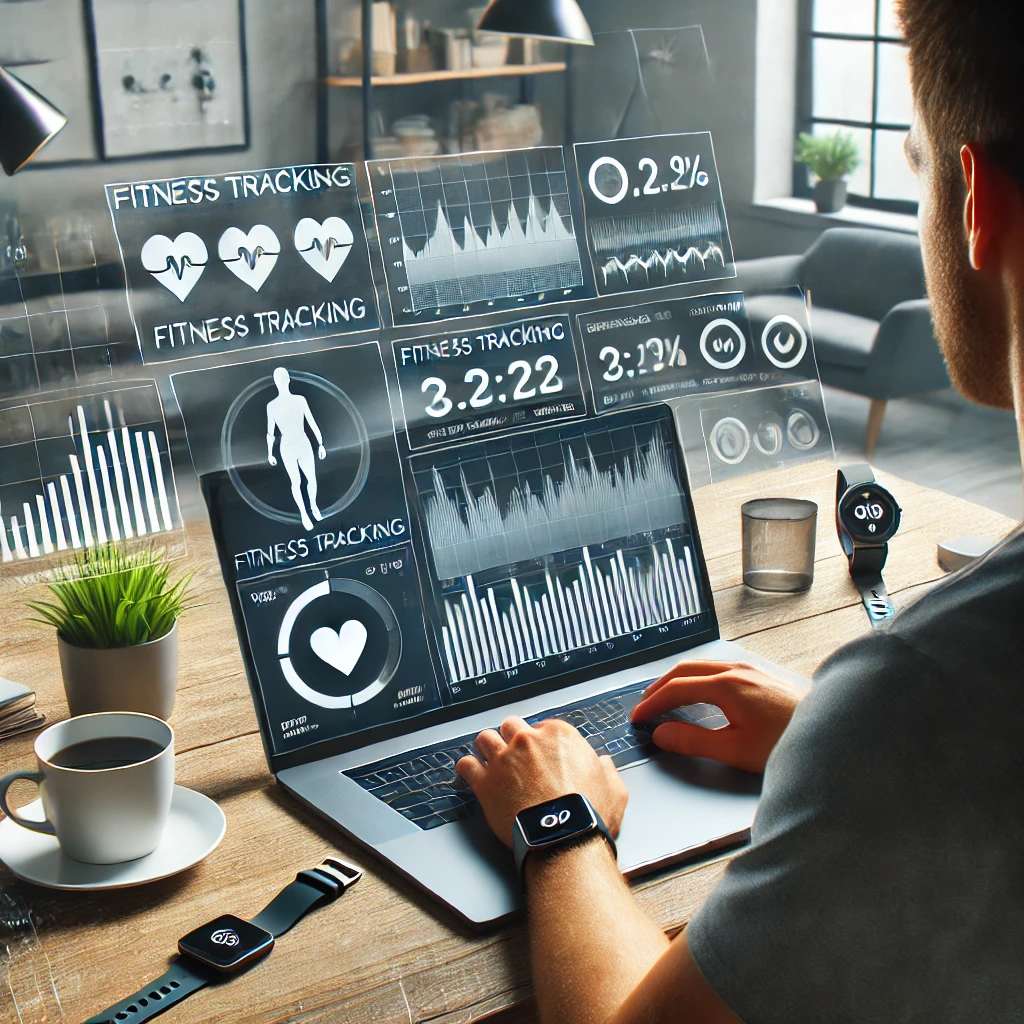Introduction
Fitness tracking has become a central feature in modern wellness routines. From smartwatches and apps to wearable devices that monitor every step, heartbeat, and calorie burned, the appeal of data-driven health is undeniable. But while these tools promise improved motivation and accountability, they also come with potential downsides. In this blog, we explore the pros and cons of fitness tracking so you can decide whether it truly supports your health goals—or complicates them.

The Pros of Fitness Tracking
1. Increased Awareness and Motivation
Fitness trackers provide real-time feedback on your physical activity, offering insights into how much you move, sleep, and burn throughout the day. Seeing this data can be highly motivating, encouraging users to walk more, exercise regularly, or get better rest.
2. Goal Setting and Accountability
Most fitness tracking apps and devices allow you to set daily goals—like walking 10,000 steps or drinking a certain amount of water—and notify you when you’re falling short. This creates a sense of accountability, which is especially helpful for people who thrive on structured progress.
3. Detailed Health Metrics
Advanced fitness trackers now offer a wide range of health metrics, including heart rate, oxygen saturation, sleep stages, stress levels, and menstrual cycle tracking. These features give a more holistic view of your health and can help you make more informed lifestyle decisions.
4. Easy Progress Monitoring
By collecting data over weeks or months, you can track your progress in a measurable way. Whether it’s running faster, sleeping longer, or improving heart rate variability, tracking provides a tangible sense of accomplishment.
5. Integration with Health Ecosystems
Fitness trackers often sync with other health platforms and apps, allowing for a comprehensive approach to wellness. You can connect fitness data to meal planning apps, meditation tools, or even share information with your healthcare provider.
The Cons of Fitness Tracking
1. Over-Reliance on Data
While numbers can be helpful, they don’t tell the whole story. Becoming overly dependent on data can cause you to ignore how your body actually feels. You may push through fatigue just to meet a step count, or feel guilty for missing a metric, even when rest is what your body needs.
2. Inaccuracy and Inconsistency
Despite technological advancements, fitness trackers are not always accurate. Step counts, calorie burn, and even sleep tracking can vary between devices and may not always reflect reality. This can be frustrating for users who rely on precise data to measure progress.
3. Obsession and Anxiety
Constant monitoring can lead to obsession, especially for those with perfectionist tendencies or a history of disordered eating or exercise. It can create pressure to ‘perform’ every day, which may harm mental health rather than support it.
4. Privacy Concerns
Fitness trackers collect personal health data, raising concerns about how that information is stored and shared. Not all apps and devices offer full transparency, and some may use your data for advertising or third-party access without clear consent.
5. Cost and Accessibility
High-quality fitness trackers can be expensive, and their full features are often locked behind subscription paywalls. This can make them inaccessible to many people and contribute to the idea that tech is essential for health, when many effective strategies are free.
Finding the Right Balance
Fitness tracking can be a powerful ally in your health journey—but it’s not for everyone. If you find motivation in data, enjoy setting goals, and use tracking as a gentle guide rather than a strict rulebook, it can be a valuable tool. However, if you feel stressed by the numbers, disconnected from your body, or find yourself obsessing over stats, it might be time to step back and reassess.

Conclusion
Fitness tracking offers both empowering insights and potential pitfalls. Like any wellness tool, its value lies in how you use it. The key is balance—using tracking to enhance your awareness and progress, without letting it override your intuition or well-being. Whether you embrace a wearable or go tracker-free, the most important metric is how you feel in your body and mind every day.





